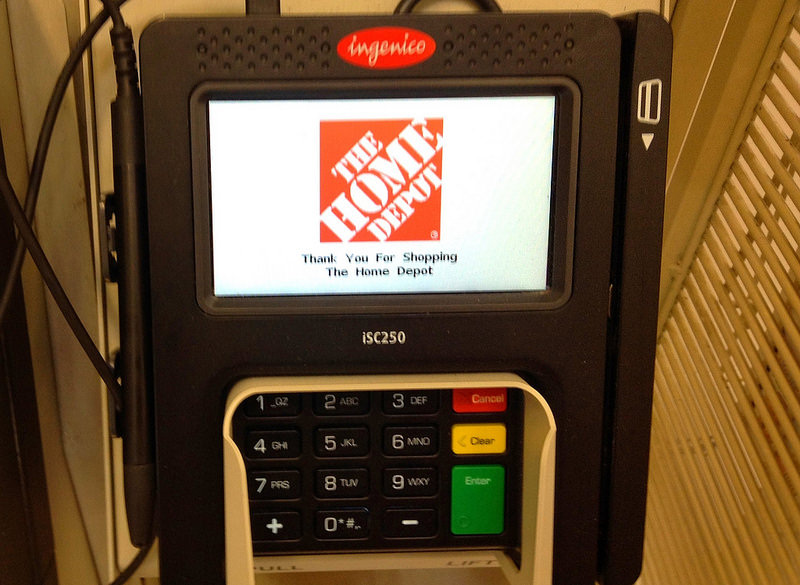| If millions of customers were robbed at gunpoint every time they entered a particular store, people would stay away. Even if a place got a reputation as a hangout for pickpockets, it wouldn’t last long. But today we have the equivalent of a situation in which thieves secretly gain the ability to steal from customers who enter a business, then decide much later which ones will become victims. Somehow, the economy keeps moving, but it’s getting scary out there. |
| | Home Depot is the latest retailer to announce that its credit card processing system has been compromised. While the store has yet to provide details on the scope of the problem, it said the thefts began as far back as April and were discovered only after banks and law enforcement agencies alerted the chain to problems last week. Add this to the Target breach last Christmas that was said to have compromised tens of millions of customers, the Neiman Marcus credit thefts and other, smaller problems of a similar nature, and it’s a wonder anyone has the guts to enter a store. We are living in an invisible, surreal version of the Wild West. Everything around us seems civilized and calm, and yet our lives and fortunes are constantly under assault. With few people willing to abandon the computer culture, it’s up to the good guys to begin thinking like bad guys. Identity theft expert Robert Siciliano has been quoted by mashable.com as saying, "Everyone's data has been compromised at least three or four times at this point." Which means it’s up to someone you don’t know to decide whether to destroy your life. A cbsnews.com story earlier this year said only three years ago you would have had a 1-in-10 chance of experiencing trouble if you credit card was one of millions compromised at a retail store. Today, 46 percent will become victims of fraud. Criminals can take over a victim’s life by changing passwords, addresses, phone numbers and other identifiers in an effort to lock a person out of his or her own accounts while charges mount. As the cbsnews.com account said, a thief looking to crack a bank’s security questions (What’s the name of your favorite pet? What is your favorite movie? etc.) can merely examine your Facebook profile for the answers. As more and more retailers are adding their voices to the list of sheepish admissions that no transaction is safe, Americans seem to be ready to tolerate the risks, especially if the only alternative is to dismantle the new world we have crafted around convenient mobile devices. Speaking of which, Apple’s new iPhone, announced in recent days, includes a payment feature it says will make transactions more secure at certain retailers. The explanations sound impressive. Each transaction will receive its own security code and account number, making it harder for thieves to grab handfuls of sensitive information at once. But then it’s easy to be skeptical, especially so soon after several celebrities had private photos stolen from Apple’s cloud server. At Utah State University, researchers are using a $1.2 million National Science Foundation grant to try to hack smart cars, alerting manufacturers to vulnerabilities. It’s a good move — trying to keep a step ahead of the bad guys — but it has to be more than a one-shot effort. Smart cars were first envisioned in the 1939 World’s Fair, when visitors were shown a simulation of how radio signals would keep cars from colliding. It would, of course, be pointless to find ways to thwart intercepted radio waves today. USU’s effort will reveal 2014 vulnerabilities to smart car technology. But technology keeps marching, opening endless vistas for mischief-makers. The race to keep a step ahead of the bad guys seems never-ending, and exhausting. Given Home Depot’s admission, we are once again left to mentally retrace our shopping steps over several months to see if we are vulnerable, then to ponder new and clever passwords we might, or might not, remember. The future wasn’t supposed to be this hard. I liked it better when the Wild West was only something that entertained us on television. |


 RSS Feed
RSS Feed

